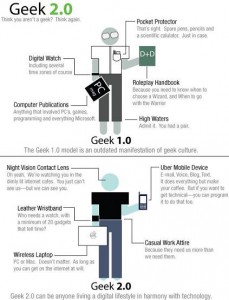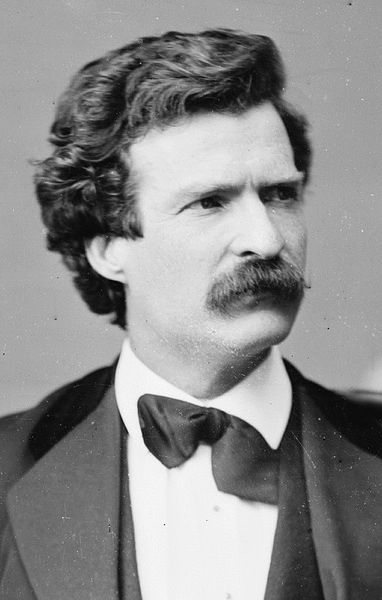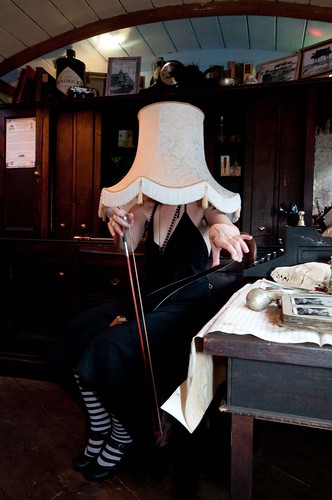Happy almost New Year! Yesterday we brought you our most popular posts of 2013. Today we’re bringing you the best of Language Blog Roundup with the our favorite language stories of the year.
Bqhatevwr
The year in language began with former Senator Scott Brown’s Twitter trouble when he responded, a bit hastily, to a troller, “Bqhatevwr,” leading to, as Daily Kos put it, “mass hilarity.”
Gun control debate
The linguistics of gun control — or should that be gun safety? — featured prominently in language news this year. NPR discussed how language shapes the debate and how deeply embedded gun metaphors are in the English language.
Boston Marathon bombings
In the aftermath of the pressure cooker bombings, Ben Zimmer addressed how the word surreal was used over and over to describe the events. At Lingua Franca, Lucy Ferriss discussed the term first responder, and Jen Doll looked at how we use terms like bro bombers to “pop the balloon of terror.”
Passings
We were saddened by several passings this year, including programmer and activist Aaron Swartz; screenwriter Ruth Prawer Jhabvala; film critic Roger Ebert; journalist Michael Hastings; science fiction writer Richard Matheson; TV writer Gary David Goldberg; long-time White House correspondent Helen Thomas; crime fiction master Elmore Leonard; poet Seamus Heaney; best-selling author Tom Clancy; Cuban-American novelist Oscar Hijuelos; Nobel Prize winner Doris Lessing; Young Adult author Ned Vizzini; and Michael Cronan, graphic designer, marketing executive, professional namer, and Reverb friend.
More notable passings of 2013.
Argle-bargle and Antonin Scalia
In June the Supreme Court struck down a key part of the Defense of Marriage Art, “the 1996 law signed by President Clinton that defined marriage as between a man and a woman for the purpose of federal law.”
A dissenting voice was Justice Antonin Scalia, who described “the reasoning of the majority opinion” as “legalistic argle-bargle.” Argle-bargle, says Ben Zimmer, is “a verbal dispute.” Arika Okrent looked at argle-bargle and the meaning of word reduplications while Slate offered a glossary of Scalia-isms.
Later, Scalia went on to say that “words have meaning [and] their meaning doesn’t change.” We hate to break it to you, Nino, but —
Changing definitions
The changing definitions of words was also a big story in 2013. In February, the Associated Press addressed same-sex unions by changing their definition of the the word marriage:
Regardless of sexual orientation, husband or wife is acceptable in all references to individuals in any legally recognized marriage. Spouse or partner may be used if requested.
Jen Doll told us what the definition of marriage tells us about marriage equality. Meanwhile, the definition of fiance might be changing as well.
The gender neutral pronoun
What if the subject could be either a he or she? What if you don’t know? What if it doesn’t matter? You could use the singular they (Jen Doll is against it, John E. McIntyre is for it, and OxfordWords blog remains neutral). You could make up your own pronouns like kids in Baltimore and elsewhere.
Or you could omit pronouns all together, like The New York Times in this tweet about Bradley Manning, sentenced for leaking classified documents to Wikileaks, who released a statement saying, “I am Chelsea Manning. I am female.” Or you could ignore the individual’s wishes, like The New York Times again when they referred to Private Manning as “he” in an article about her announcement.
‘Literally’ in the dictionary!
Some people freaked out about the “wrong” definition of the word literally going in “the dictionary” (which dictionary, they didn’t say). However, as Ben Zimmer pointed out, this “incorrect” meaning — literally used to mean figuratively — has been in use since 1769.
So take some advice from John McIntyre, Ben Yagoda, and Tom Chivers, and literally calm down.
Cracker and the n-word
Controversy ensued when celebrity chef Paula Deen admitted to having used the n-word in the past. Kathleen Parker at The Washington Post explained why Trayvon Martin’s use of cracker to describe George Zimmerman doesn’t compare to using the n-word, while NPR recounted the secret history of the word cracker.
JK Rowling unmasked
The Harry Potter creator was revealed to be the author of the crime novel, The Cuckoo’s Calling, which she had written under the pseudonym, Robert Galbraith. While forensic linguist Patrick Joula figured this out by using “a computer program to analyze and compare word usage,” Vulture gathered their own Potter-esque clues in the crime novel.
Alice Munro wins Nobel Prize
Short story writer Alice Munro was awarded the Nobel Prize in Literature, becoming the first Canadian woman to do so and prompting accolades from fellow authors.
Except, that is, for American Psycho author Bret Easton Ellis who tweeted that Munro was “an overrated writer,” prompting comedian (and Canadian) Norm MacDonald to eviscerate Ellis in a few tweets.
Jane Austen madness
With the 200th anniversary of the publication of Pride and Prejudice, 2013 was a big Jane Austen year. The Royal Mail released stamps featuring scenes from all six of Austen’s novels; a giant Mr. Darcy was erected in Hyde Park, London; Austen’s likeness is set to replace Darwin’s on the 10 pound note; and an Austen portrait was recently sold at Sotheby’s for £164,500.
The biggest Austenites may want to go this Jane Austen summer camp or the annual meeting of Jane Austen Society of North America, or JASNA for those in the know.
Great Gatsby mania
Baz Luhrmann’s The Great Gatsby came out, and everyone went nuts for everything Gatsby, from book covers, to the language of jazz, to F. Scott Fitzgerald’s contributions to the English language. We at Wordnik were not immune and wrote about the language of the 1920s beyond the bee’s knees.
Choosy pronouncers choose GIF
We’ve been pronouncing it wrong all this time! At least according to Steve Wilhite, the creator of the Graphics Interchange Format, better known as the GIF. However, Stan Carey assured us we can pronounce GIF any way we want, even if Alex Trebek pronounces it like the peanut butter.
The new ‘the’
Australian restaurateur Paul Mathis proposed a new symbol to replace the cumbersome three-letter word. Arit John questioned if we really need to shorten the while Tom Chivers recounted other failed attempts at “improving” the English language.
Linguistic tropes
All types of linguistic tropes were the rage this year. Anne Curzan revealed that the slash isn’t just a punctuation mark anymore, and Stan Carey told us about the new preposition because (because language slash awesome!).
Ben Yagoda considered what he considers the most. Tiresome. Trope. Ever. Ben Crair at New Republic claimed the period to be the most pissed off of all punctuation marks. Anne Cuzan also wrote about all caps while James Harbeck gave us some pointers on how to use them correctly.
Cronuts and other food mashups
It’s part croissant, part donut, all portmanteau — what’s not to love about the cronut? But 2013’s food mashups didn’t stop there. There was the frissant, part fritter, part croissant; the Thanksgiving turdoughnut, a donut stuffed with turkey and cranberry sauce or gravy; the s’monut, a s’mores donut; and many more.
For even more on food mashups, check out this Reverb collection.
The selfie
First there was the selfie, then the funeral selfie, then a presidential funeral selfie (oh, Barry), the shelfie (our personal favorite), and the felfie. No wonder Oxford Dictionaries picked selfie as their word of the year.
[Image via Daily Kos and @tmwsiy]











